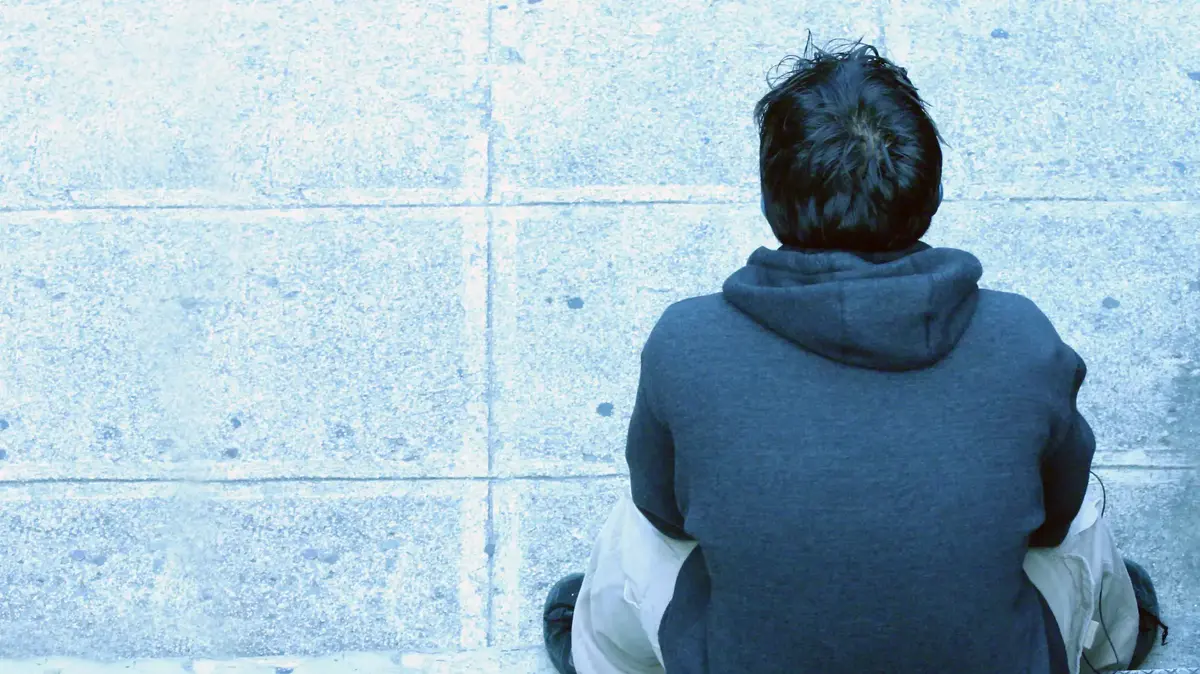Reading
Funes, el memorioso
, by Borges, we learned that an excessive capacity to remember can be a life sentence, which even prevents thinking (because thinking is "forgetting differences, generalizing, abstracting").
Something similar occurs with the appreciation of the intrinsic value of objects: for patients with hoarding disorder, all things have a value, a meaning, a utility, an associated emotion, a benefit, a memory, and, therefore, they are all longed for and desired and none can be thrown away.
By compulsively acquiring them and not throwing any of them away, the accumulation is increasingly exorbitant, leaving little physical space for survival and, in that ocean of valuable things, the patient is shipwrecked and drowns.
Hoarding disorder is defined in the DSM-5 as the acquisition and inability to throw away objects and belongings that are apparently useless or of very limited value.
The patient would seriously object to the tagline—subjective, after all—of "very limited value."
Years ago, in the home of a hoarding patient, surrounded by huge piles of newspapers, magazines, letters, bills, boxes, hangers, old clothes, lamps, plastic bags, medicines, toiletries, candlesticks, bottles, and videotapes VHS, which barely left a narrow corridor to reach the mattress where I slept, I dared to ask: “but why all this?”.
And the patient's face was transfigured and he replied with delight: “because you don't see it, but, for example, this
Diary 16
from 1989 —and he took it out of a column on the verge of falling apart— is a gem to get to know the Spain of the time;
look, the articles are not read, the crossword puzzles are not filled in, I can have fun watching the advertisements, the TV programming, the recipe, the obituaries... throwing it away would be a crime”.
A broken chair with three legs, stolen from a
clean point
in Alcalá de Henares, was a luxurious source of pieces of wood that I was going to need one day for sure.
A musty curtain was a lush piece;
I daresay it was sacred to him.
He not only saw utility in the object, he saw beauty in that imagined utility.
More information
Found the decomposed corpse of an old woman in Madrid
Any of us, although on a smaller scale, is a bit of an hoarder, for example, when we resist throwing away our career notes, already outdated and useless: it would be violating our memory of youth.
William James regarded acquisition as a common instinct in the general population, a
fixed pattern of action
—on the other hand, the basis of unleashed consumerism that makes the economic wheel turn—.
Freud suggested the association of it with the yearning for order, greed and obstinacy, constituting a precursor personality of the obsessive, the result of anal fixation (the psychoanalytic terminology is eschatological).
Erich Fromm and others have suggested that the inability to throw objects in the face of the possibility of needing them in the future is a desperate way of seeking control in the face of a threatening environment.
This is consistent with the higher incidence found in survivors of war or, as several published studies indicate, of the Holocaust.
In our environment we have all met a grandmother who did not throw anything away, since "the damn war" happened.
The opposite of our consumerist opulence, the planned obsolescence of devices and its consequence,
From an evolutionary perspective, hoarding behavior is associated with the collection and storage of food by rodents, birds, and other animals, constituting one more aspect of the life cycle.
And in experimental studies with rats, it has been found that lesions in one area of the hippocampus (the dorsal) cause an increase in hoarding behavior, while it decreases in others.
Its relationship with human accumulation is not clear, although in obsessive patients there is also a release of primitive behavioral programs related to grooming and territoriality, which are normally controlled by the basal ganglia and are activated by dysfunctions of the frontal lobe .
As always, the cultural and the neurobiological are intimately linked.
The fact is that around 2% of the population suffers from hoarding disorder, which carries a high burden of disability, suffering and a strong association with depression.
Classically related to obsessive-compulsive disorder (between 20-40% of patients with OCD accumulate), however, it has its own characteristics, among which it stands out that it is ego-syntonic, that is, the patient does not recognize his behavior as pathological ( unlike OCD, which is ego-dystonic).
Treatment with antidepressants and cognitive-behavioral therapy seems effective, although the evidence is much less than in other disorders.
however, its own characteristics, among which it stands out that it is ego-syntonic, that is, the patient does not recognize his behavior as pathological (unlike OCD, which is ego-dystonic).
Treatment with antidepressants and cognitive-behavioral therapy seems effective, although the evidence is much less than in other disorders.
however, its own characteristics, among which it stands out that it is ego-syntonic, that is, the patient does not recognize his behavior as pathological (unlike OCD, which is ego-dystonic).
Treatment with antidepressants and cognitive-behavioral therapy seems effective, although the evidence is much less than in other disorders.
Diogenes syndrome, under a similar guise, is a completely different phenomenon.
Its psychopathological core is total personal and social abandonment, carelessness, the accumulation of large amounts of garbage and waste, sometimes pets and their droppings, the accumulation of random objects picked up on the street without a clear intention, along with a progressive isolation in that chaotic and stinking home.
The patient does not argue any reason for its accumulation, but rather minimizes it, it seems normal to him.
It mainly affects the elderly who live alone, logically generating a serious problem of coexistence and public health in their neighborhood, apart from medical complications: they can die of malnutrition and dehydration.
It is not included in the international diagnostic manuals as a category,
because it can appear in different diseases.
In more than half of the cases, a serious mental disorder is identified: dementia, schizophrenia, personality disorder or depression.
The interaction of previous personality traits, stressors typical of old age, such as widowhood or sensory limitations, social isolation and progressive deterioration of daily functioning is common.
Typically, the patient violently rejects outside help.
The term Diogenes Syndrome has become very popular and erroneously extended to any form of accumulation.
The name is also misleading, given that the Greek philosopher Diogenes actually promoted independence from material needs and the ideals of deprivation, when what is present in these patients is pure neglect (of hygiene,
Finally, there is an accumulation due to pathological collecting.
Most children and some adults collect cards, stamps, coins, books or tin soldiers, and this activity is organized, ordered, recorded.
The collector individualizes each valuable object according to its specific characteristics, placing it in a corresponding place, in its album, box or cabinet.
The collected objects are often appreciated by other collectors of the same material, and can reach scientific, artistic or economic value.
This activity, in principle healthy and sometimes admirable, can become an addiction, and invade the time and space of the subject and her family.
In short, the hoarder is unable to cope with life by getting rid of objects, all of them potentially useful;
the Diogenes, in the midst of total carelessness, disorderly accumulates garbage and waste;
the collector gathers and catalogs treasures.
And we will continue to relate as best we can with things: with their usefulness, their meaning, their symbolism.
We will love the family home that ended up destroyed, we will jealously guard that clock that our father used, we will feel intimately accompanied by the folded pages of that book, we will touch the earth, the stones, as if they connected us to life.
You can follow
EL PAÍS Salud y Bienestar
on
,
and
.








